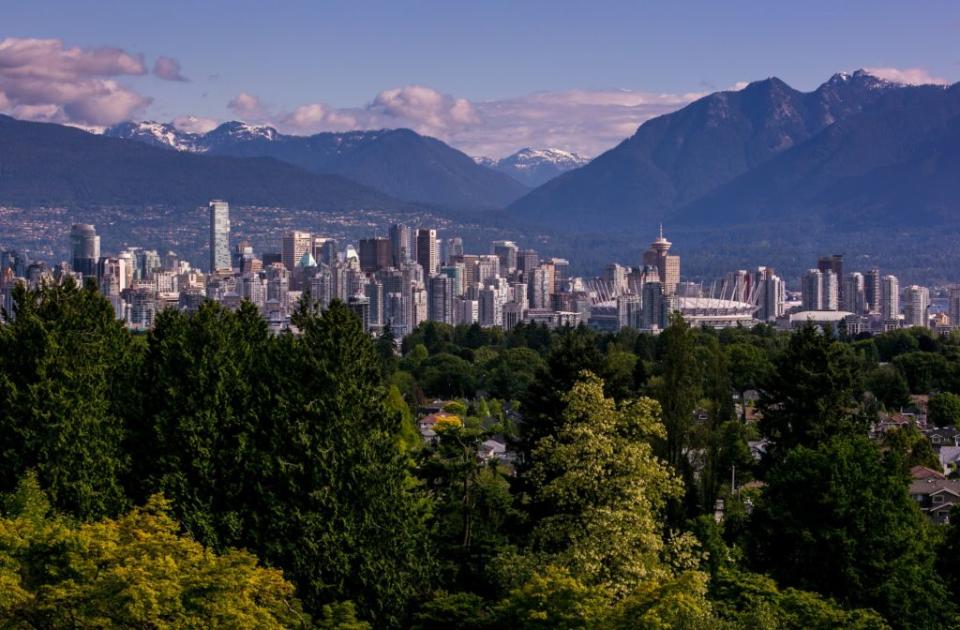Brexit and Trump could be good news for Canada’s tech scene

By 2019, it’s estimated there will be 182,000 job openings in Canada’s tech sector—and no Canadians to fill them. Better-known for maple syrup, snow-capped mountains, and head-of-state heartthrob Justin Trudeau, Canada is also home to a vibrant tech sector that is crying out for workers. And Donald Trump’s unlikely presidency may already be helping Canadian tech firms fill those spots.
On the night of Nov. 8, as many Americans realized that Trump was going to be elected president of the United States of America, a flood of hundreds of thousands of visitors crashed Canada’s immigration website. People were presumably looking for ways to relocate to Canada and escape whatever Trump has in store for the four years ahead.
But in fact, Americans accounted for just half of the surge in visits to the immigration website—visitors from other parts of the world made up the other half. But why?
Options for foreign workers looking to emigrate are narrowing. June’s Brexit decision in Britain was based in on a desire to tighten the UK’s border and restrict its flow of immigrants. Indeed, the future of the European Union, the world’s largest trade zone, is in question as anti-immigrant, right-wing parties in the Netherlands and in France seem poised for victory in 2017. In the US, on top of vowing to build a wall with Mexico and deport immigrants, Trump has promised to clamp down on the H-1B visas that bring 85,000 skilled international workers into America each year.
Meanwhile, across Canada, 71,000 tech companies are responsible for over 7% of Canada’s economic output and 5.6% of Canada’s total employment. Meanwhile, across Canada, 71,000 tech companies are responsible for over 7% of Canada’s economic output and 5.6% of Canada’s total employment: Technology now typically employs more people than mining, oil and gas, and forestry sectors combined. Canada, with its reputation for tolerance and openness to diversity and immigration, has been called one of the world’s last “safe harbors.” Add an almost unlimited demand for skilled workers across the country, and it’s easy to see why Canada could become the next hub for the globe-trotting workforce.
“Donald Trump has definitely been a topic of conversation here in Seattle,” says Dan Gunn, chief executive officer of VIATEC, a Canada-based community organization and 16,000 square-foot technology accelerator. In the days following the US election, Gunn was spending time in Seattle for Startup Week. “There are questions about what Trump means for tech and for tech workers in the States. Highly skilled workers from around the world, particularly visible or religious minorities who had their sights set on moving to the US, might look to Canada for opportunities instead.”
As head of VIATEC, Gunn helped build a thriving technology sector in Victoria—a small Canadian city of about 350,000 people located on an island just to the north of Seattle. Once known mainly as a sleepy government town and destination for retirees and tourists, Victoria is now home to a thriving tech scene that has attracted everyone from global giants like Amazon and Schneider Electric to game developers such as Kixeye and a Change.org satellite office.
Just like the rest of the Canadian technology sector, Victoria—nicknamed “Tectoria”—has plenty of job openings. “Canada is growing, a thriving innovation sector, and advanced technology has become the number-one industry in Victoria,” Gunn says. “Nearly 900 companies employ over 23,000 people here. And they’re always hiring.”
Across Canada, the need for workers is currently so great that a number of employers and industry organizations have banded together with the Canadian government to launch Go North Canada. The initiative is an attempt first and foremost to lure some of the more than 350,000 Canadians who work in Silicon Valley (as well as Canadians in other parts of the US) back home.
“Canadian companies are currently looking to fill three different kinds, of roles: technical talent, experienced sales and marketing talent, and people in leadership roles who have experience scaling up companies,” says Heather Galt, vice president for human resources at Communitech, an Ontario technology-startup hub, who is helping promote the Go North Campaign across Canada. Galt says that Canada can often offer a better quality of life compared to working in the US: It has better schools, lower commute times, and a stunning natural environment.
The Trudeau government has also announced a new strategy to make it easier for companies to recruit foreign tech talent. Compared to the H-1B visa process in the US, which can take about six months to set up, it normally takes nine months or more for foreign tech workers to receive a Canadian work visa.
“Dealing with red tape is the number-one obstacle to bringing foreign talent to Canada,” says Noah Warder. Warder leads operations at Sendwithus, a Victoria-based startup that builds tools for email marketing. “It’s much easier to bring Canadians north of the border,” he says.
While it’s still too early to determine whether or not Justin Trudeau’s new immigration strategy will make it easier to recruit foreign workers, the prospect of Canada’s attractive tech scene—not to mention its equally attractive outdoor wonderland—should give many foreign workers something to dream about.
You can follow Nevin on Twitter at @Nevin_Thompson. Learn how to write for Quartz Ideas. We welcome your comments at ideas@qz.com.

Sign up for the Quartz Daily Brief, our free daily newsletter with the world’s most important and interesting news.
More stories from Quartz:

 Yahoo Finance
Yahoo Finance 